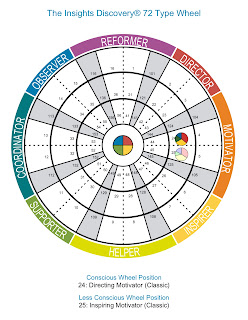Facebook "Likes" to know all about us
Facebook seems to have a track record of stealthily launching new features that work massively in the company's advantage, then doing some sort of back track if the outcry becomes too loud.
One of the latest difficulties is the revelation in the last few days that the "Like" buttons that have been springing up on most major sites over the last few months reveal information about us, even if we are not logged in to Facebook. Even if we have never registered at Facebook, our computer's IP address is still recorded along with the information about the web pages we're visiting, when and for how long ...
Last week's announcement of the Open Graph technology allows third-party websites to tell Facebook what people are doing. It extends Facebook's "Like" button to include any action that the site owners think might be interesting to Facebook. As a Facebook user you can opt not to have that information published (don't allow this publishing to start with); but you can't stop those sites you visit implementing Open Graph and sending the information to Facebook in the first place!
Over time this information can build up to be quite a large dossier on each Internet user. Something Adrian Short describes as 'silent total surveillance.' We can't opt out because the information is automatically shipped to Facebook the moment we land on a web page that's included the "Like" button.
Web site owners who implement "Like" are selling their users' web surfing information in the hope of a few more page views. Now I know, I've removed the "Like" feature from the web properties I own.
Here's how it works: Facebook gets web publishers to insert an iframe or JavaScript in the HTML for their Web pages. As soon as the page is loaded, the code invokes a PHP script at Facebook.com that records information including the URL for the Web page, your IP address, and your Facebook ID (if you're authenticated).
Get more like this
One of the latest difficulties is the revelation in the last few days that the "Like" buttons that have been springing up on most major sites over the last few months reveal information about us, even if we are not logged in to Facebook. Even if we have never registered at Facebook, our computer's IP address is still recorded along with the information about the web pages we're visiting, when and for how long ...
Last week's announcement of the Open Graph technology allows third-party websites to tell Facebook what people are doing. It extends Facebook's "Like" button to include any action that the site owners think might be interesting to Facebook. As a Facebook user you can opt not to have that information published (don't allow this publishing to start with); but you can't stop those sites you visit implementing Open Graph and sending the information to Facebook in the first place!
Over time this information can build up to be quite a large dossier on each Internet user. Something Adrian Short describes as 'silent total surveillance.' We can't opt out because the information is automatically shipped to Facebook the moment we land on a web page that's included the "Like" button.
Web site owners who implement "Like" are selling their users' web surfing information in the hope of a few more page views. Now I know, I've removed the "Like" feature from the web properties I own.
Here's how it works: Facebook gets web publishers to insert an iframe or JavaScript in the HTML for their Web pages. As soon as the page is loaded, the code invokes a PHP script at Facebook.com that records information including the URL for the Web page, your IP address, and your Facebook ID (if you're authenticated).
Get more like this



Comments